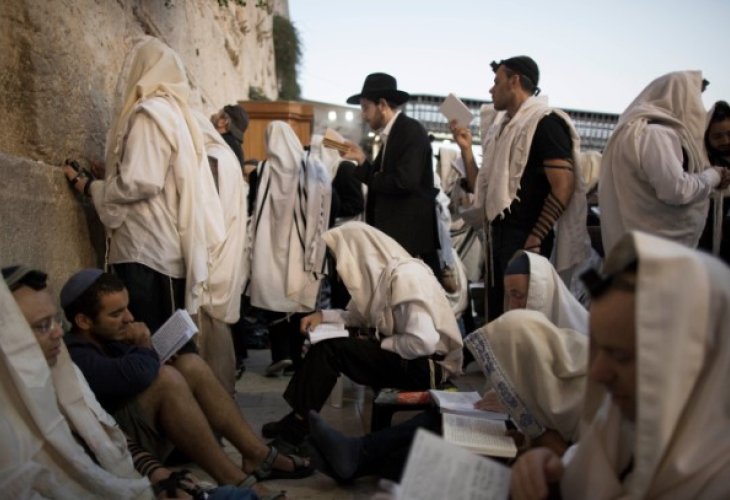Between the Straits
Laws of the Nine Days and the Week of Tisha B’Av: What’s Forbidden and What’s Permitted
A practical halachic guide explaining the customs of mourning related to clothing, grooming, and laundry restrictions

A. Sewing, Knitting, and Buying New Clothing
From Rosh Chodesh Av until Tisha B’Av, it is forbidden to:
Sew or cut new garments.
Knit new clothing or prepare new shoes.
Buy new clothes or new shoes.
B. Repairs and Exceptions
It is permitted to repair torn clothes or shoes during this period.
Patching garments for the sake of repair is also allowed.
For a groom preparing for a wedding that will take place after Tisha B’Av — if he has not yet fulfilled the mitzvah of procreation — he may be lenient and sew or buy new clothing.
A poor person who earns a living by sewing may also do so during these days.
If there is concern that clothing or shoes will rise in price later, one may buy them now to avoid financial loss — whether for a wedding or for regular use.
C. Factories and Workers
Owners of clothing or shoe factories may continue production during these days if stopping work would cause financial loss, especially when their workers are non-Jews.
They should, however, conduct their work discreetly.
Likewise, carpenters or other craftsmen who make new items may continue working.
D. Haircuts and Shaving
According to the Sages, it is forbidden to cut hair or shave during the week in which Tisha B’Av occurs. This applies to both head hair and beard hair, and this is the Sephardic custom. However, one may trim a mustache if it interferes with eating. On Tisha B’Av itself, even trimming such a mustache is forbidden.
The Ashkenazi custom is stricter — refraining from haircuts from the 17th of Tammuz until the 10th of Av.
E. Brit Milah (Circumcision)
If a Brit Milah occurs during the Three Weeks, the mohel, sandak, and father of the baby may cut their hair and shave on the day of the Brit in honor of the mitzvah — even after Rosh Chodesh Av.
However, if the Brit Milah occurs during the week of Tisha B’Av, none of them may shave or cut hair — this applies to both Sephardim and Ashkenazim.
F. Women and Children
Women are permitted to cut their hair even during the week of Tisha B’Av.
Some Ashkenazic authorities are stringent with women as with men.
It is forbidden to cut the hair of children, even those below the age of education, during this week.
G. Combing
It is permitted to comb one’s hair or beard even during the week of Tisha B’Av.
H. Cutting Fingernails
The custom is to avoid cutting fingernails during the week of Tisha B’Av, except on Friday (Erev Shabbat Chazon), when one may trim nails in honor of Shabbat. If one’s nails are excessively long, they may be trimmed even during the week. It is also permitted to cut nails for the sake of a mitzvah.
I. Washing and Laundering Clothes
According to Torah law, it is forbidden to wash clothes during the week of Tisha B’Av — this is the Sephardic custom.
The Ashkenazi custom forbids laundering from Rosh Chodesh Av onward.
The prohibition applies even if one does not intend to wear the clothes immediately, and even washing with water only is forbidden.
Even someone who owns only one garment may not wash it, though according to Ashkenazi custom this restriction applies only during the week of Tisha B’Av.
The prohibition includes:
Both outer and undergarments.
Towels, tablecloths, and bed sheets.
However, handkerchiefs used for blowing one’s nose may be washed.
J. Children’s Clothing
It is forbidden to wash children’s clothes during these days.
However, one may be lenient to wash baby or toddler clothing (up to about age 2–3), as they soil their garments frequently.
K. Wearing Freshly Laundered Clothes
Just as washing clothes is forbidden during this period (and for Ashkenazim from Rosh Chodesh Av), so too it is forbidden to wear freshly laundered garments — even if they were washed before this week.
Rabbi Shai Amar serves as a rabbi and halachic authority at the Hidabroot Halacha Department.

